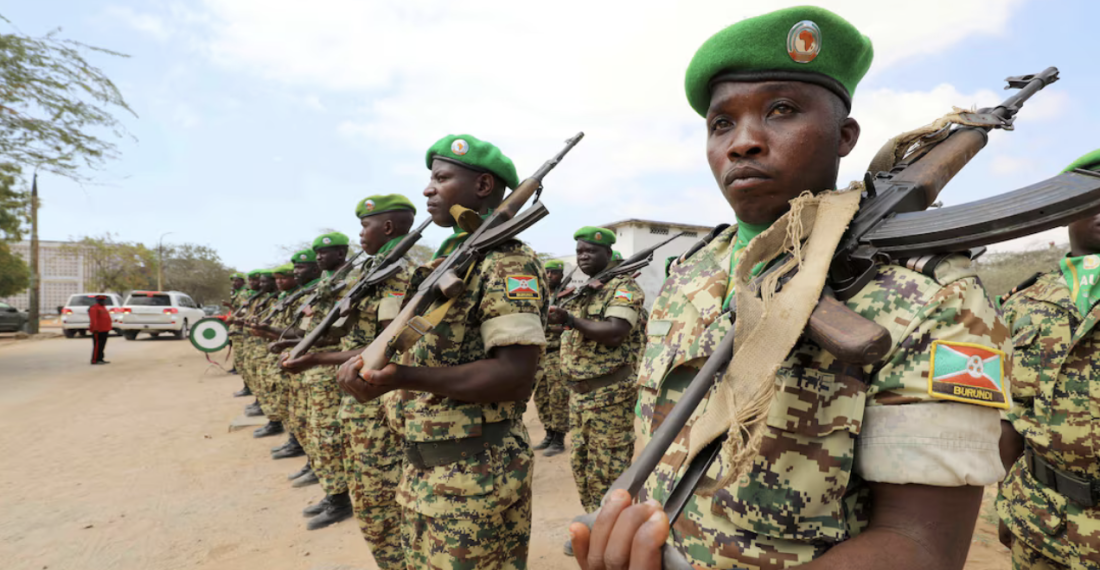Somalia's government is trying to delay the withdrawal of African peacekeepers, warning of a potential security vacuum, according to documents seen by Reuters. Neighbouring countries are concerned that resurgent al-Shabab militants could seize power. The African Union Transitional Mission in Somalia (ATMIS) is due to withdraw by 31 December, to be replaced by a smaller new force. But in a letter last month to the acting chair of the African Union Peace and Security Council, the Somali government asked for the withdrawal of half of the 4,000 troops due to leave by the end of June to be delayed until September. The letter had not been previously reported. A joint assessment by the Somali government and the AU in March, seen by Reuters, recommended adjusting the overall withdrawal timetable based on the readiness and capabilities of Somali forces. The assessment, which was mandated by the UN Security Council, warned that 'a hasty withdrawal of ATMIS personnel will contribute to a security vacuum'. Mursal Khalif, an independent member of parliament, expressed deep concern about the country's direction. The European Union and the United States, the main funders of the AU force in Somalia, have sought to reduce the peacekeeping operation because of concerns about long-term funding and sustainability, according to four diplomatic sources and a senior Ugandan official. Negotiations over a new force have been complex, with the AU initially pushing for a more robust mandate than Somalia wanted, three diplomatic sources said. A heated political dispute could lead Ethiopia to withdraw some of its most experienced troops.
The Somali presidency and prime minister's office did not respond to requests for comment. Mohamed El-Amine Souef, the AU special envoy to Somalia and head of ATMIS, said there was no definitive timeline for concluding negotiations, but stressed that all parties were committed to achieving sustainable peace and security. "The AU and the Somali government have stressed the importance of a conditions-based withdrawal to avoid a security vacuum," Souef told Reuters. The Peace and Security Council will meet later on Thursday to discuss the drawdown and the follow-up mission. As the drawdown continues, with 5,000 troops out of some 18,500 leaving last year, the Somali government has expressed confidence that the new force should not exceed 10,000 and should focus on securing key population centres. This call for a smaller force likely reflects the views of nationalists who oppose a heavy foreign presence in Somalia, said Rashid Abdi, an analyst at Sahan Research, a Nairobi-based think tank that focuses on the Horn of Africa.
Uganda and Kenya, which contributed troops to the outgoing mission, are also concerned. Henry Okello Oryem, Uganda's State Minister for Foreign Affairs, expressed concern about the sustainability of Somali troops in a long-term military confrontation. "We don't want to get into a situation where we are on the run as we saw in Afghanistan," he told Reuters. Kenya's President William Ruto warned that a withdrawal that did not take into account conditions on the ground would allow terrorists to take over Somalia. An EU spokesman said the focus was on building internal security capacity and backed a Somali government proposal for a new mission of reduced size and scope. A US State Department spokesperson stressed that the force should be large enough to avoid a security vacuum and noted that Washington has supported all requests to modify the withdrawal timetable.







